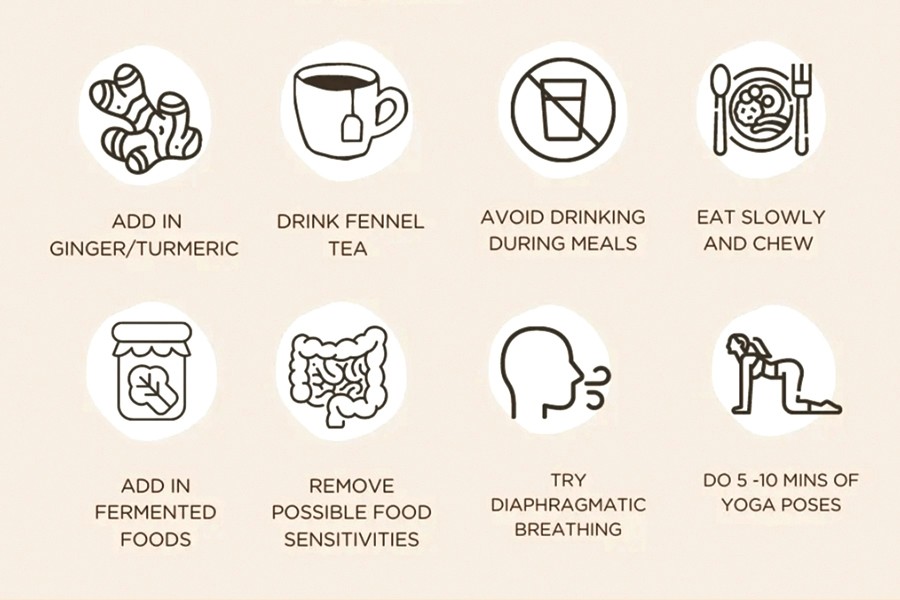
Published :
Updated :

Ramadan is in full swing now, along with our overindulgence in food during the allowed times, especially iftar and suhoor. However, such overeating also risks digestive issues, most notably bloating. This is characterised by gas buildup in our abdomen, causing a feeling of tightness and frequent burping. Though not life-threatening, bloating is uncomfortable and may create a nuisance.
But why bloating is so common during Ramadan? There are several reasons. Fasting for long hours slows down our metabolism, reducing the rate of digestion and absorption from the stomach. This is exacerbated when we lay down after iftar, avoiding physical activity. Overeating food, e.g., sweets, fatty and fried items, also contributes to the problem.
How can we deal with bloating? There are several things we can try. First and foremost, we need to make sure our diet includes plenty of water. This helps our digestive system handle the dietary fibres, one of the main culprits for a bloated stomach. We need at least 2-3 litres of water daily, which should be distributed properly from iftar to suhoor.
Eating 4-6 strawberries can work wonders, so does apple cider vinegar. This should be mixed with a glass of water and then drunk on an empty stomach. Another option is lemon juice, which is probably a staple for many households. The acids in the lemon increase the production of stomach acid, facilitating the digestive process. Tea, especially chamomile or peppermint, is quite useful in relieving bloating.
Eating bitter herbs like artichoke or aloe vera can prevent or reduce bloating. They work the same way as lemon juice by stimulating acid production.
Cardamom, cumin, garlic, ginger, and other carminative herbs do the same trick and help expel the already built-up gas in our abdomen. Cucumber can be a great remedy for bloating. It contains fibre and water, which are important for the digestive process. This vegetable also has anti-inflammatory and anti-acid reflux properties.
As mentioned, physical inactivity after iftar is a factor for bloating. So doing light physical exercise (nothing intense), e.g., a short walk, can be helpful. This speeds up the digestion of the consumed foods.
How we eat during iftar or suhoor is also important. Instead of gulping down the food rapidly, we must take time to properly chew food before taking the next bite. Once we stop eating, it will be 20 minutes before our stomach signals to the brain that it is full. So we should not hurry with our meal.
We should try to avoid certain dietary items to minimise the risk of bloating. The list most definitely includes fried foods. The oil used for frying can cause gas to build up quickly. Spicy and fatty items, carbonated drinks, and vegetables like cabbage, onion, and broccoli are all culprits, and so are lentils and beans in excess quantities.
Digestive disorders like bloating are common issues during Ramadan due to changes in our dietary contents and routines. Therefore, we must make healthy and good dietary choices.


 For all latest news, follow The Financial Express Google News channel.
For all latest news, follow The Financial Express Google News channel.